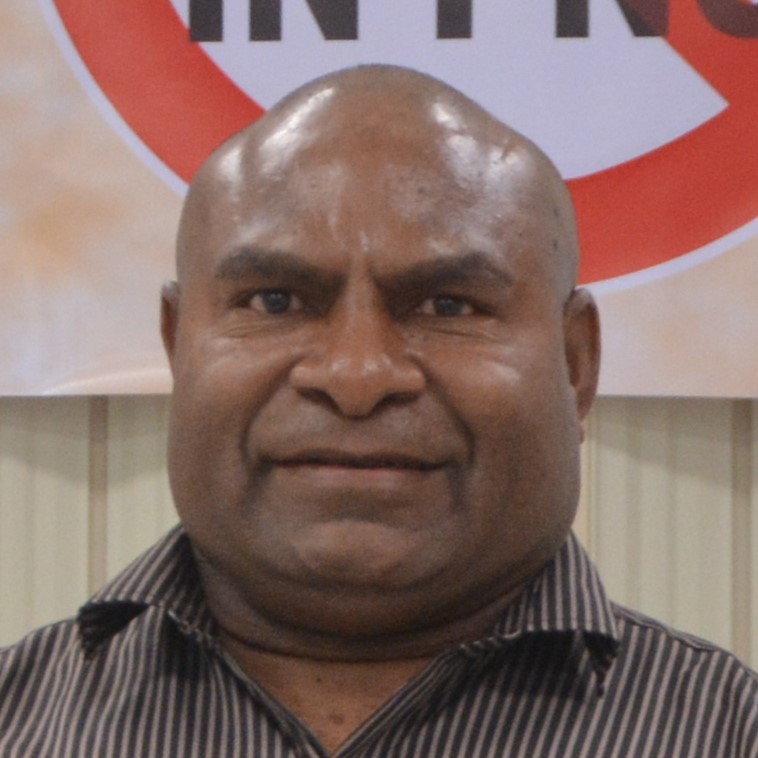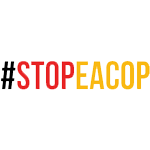Papua LNG
A liquefied natural gas project in Papua New Guinea
Thanks to Japanese bank MUFG, TotalEnergies is developing a new climate bomb in Papua New Guinea: the “Papua LNG” liquefied natural gas (LNG) project, which will lead to the emission of over 220 million tonnes of CO2.
This project confirms TotalEnergies’ intention to establish itself in Papua New Guinea. In 2012, the French major acquired the Elk and Antelope gas fields in the country’s southern Gulf province. It has also acquired other oil and gas exploration licenses, notably in deep water (source Rystad).
At a time when Papua New Guinea could be developing vast quantities of renewables for 100 times less money, the Papua LNG project is continuing the race for gas in the country, with the support of Japanese bank Mitsubishi UFJ Financial Group (MUFG), which is backing TotalEnergies in the financial package for the project. MUFG replaced the French bank Crédit Agricole, which withdrew from the project in 2024 following criticism over the climate, biodiversity and human rights impacts. Yet MUFG has committed to achieving net zero on a 1.5°C trajectory. According to the IEA, this is incompatible with the development of new fossil fuel projects, including LNG!
There’s still time to stop TotalEnergies’ expansion and end the race for gas in Papua New Guinea.
Overview of the Papua LNG project
– – – Papua LNG Pipeline
Gas fields
Papua LNG & PNG LNG Plants
Divided between TotalEnergies (37.55% stake), Exxon Mobil (37.04%) Santos (22.83%) and JX Nippon (2.58%), the project comprises 9 production wells in the Gulf Province, a 320 km onshore and offshore pipeline, and 4 electric liquefaction trains.
The project, estimated to cost $10 to $19 billion, has launched the fully integrated Front-End Engineering and Design (FEED) of the project in March 2023. TotalEnergies says it intends to announce the “final investment decision” (FID) for the project in 2026. This key step, which is being supported by the Japanese bank MUFG, would enable it to announce that the project can go ahead.
Risky for the climate and for local populations
A new climate bomb
The Papua LNG project alone would increase the country’s annual emissions from the industrial and energy sectors by 7%, resulting in over 220 million tons of CO2 emissions (scope 3), or as much as the annual emissions of the whole of Bangladesh and its 169 million inhabitants.
As such, it is not compatible with limiting global warming to 1.5°C, given that the International Energy Agency’s (IEA) Net Zero Emissions (NZE) scenario recommends that new natural gas fields that have not received a final investment decision before the end of 2021, such as Papua LNG, should not be exploited.
The people of Papua New Guinea are already bearing the full brunt of the effects of climate change. Entire communities from coastal regions and islands have already been forced to relocate, sometimes several times over, due to rising sea levels, wave damage and salinization of land and water.
A threat to local populations
The country’s first LNG infrastructure, PNG LNG, developed by ExxonMobil, has a serious record of human rights violations. Abuses by private security forces, failure to respect the consent of project-affected populations, land disputes and intra-community violence have all been reported.
Consultations with communities affected by the Papua LNG project have provoked fears that their rights will similarly not be protected: police travelled with consultants in charge of assessing human rights impacts, and the information provided about the project remains very patchy, despite repeated requests from local communities and civil society.
Questionable benefits for Papua New Guinea
Gas from the Papua LNG project would be exported to international markets, with uncertain benefits for the country’s economy and its people. Yet another model is possible for Papua New Guinea: by 2030, 78% of the country’s electricity needs could be met at a cost of $110 million – 100 times less than that of the Papua LNG project, according to government estimates.

We are very concerned about the lack of clarity regarding consultations with communities affected by the project. The information available does not make it possible to ensure that the communities will be able to give their Free, Prior and Informed Consent to this project, as is their right. Without these guarantees, financial actors should not give the green light to such a project!
Peter Bosip, Representative of Papua New Guinea NGO CELCOR
A contested project
For decades, the Papua New Guinean environmental organization, the Centre for Environmental Law and Community Rights (CELCOR) has been fighting for social and climate justice and against extractive projects in Papua New Guinea. Its director, Peter Bosip, has been campaigning for biological conservation, environmental rights and the rights of local populations to decide on the use of their land for 25 years. Today, Peter Bosip and CELCOR oppose the development of new LNG terminals in their country, such as Papua LNG.
“Papua New Guinea is already bearing the brunt of climate change. By developing this fossil fuel project, TotalEnergies would be taking us even further into new climatic, environmental and social risks. If we are to have a sustainable future, all banks should follow the example of French banks and commit not to support Papua LNG”
no bank should finance the project
As the project’s financial advisor, MUFG is supporting TotalEnergies in the financing of the project, valued at $10 to $18 billion.
In all, 29 key financial institutions – including 13 that had supported ExxonMobil’s PNG LNG project – have already indicated that they will not finance the Papua LNG project. But 11 other financial institutions who had provided financing for the PNG LNG project have yet to make a statement.
TotalEnergies may also approach other financiers that financed some of its other LNG projects in the region.
learn more
Almost 30 banks turn their back on TotalEnergies’ Papua LNG project – following the complaint by 6 civil society organizations to the Equator Principles (February 2026). Read more
50 investors urged to engage with TotalEnergies and its partners to stop the Papua LNG project, press release (January 2025) Read more
Papua LNG and the Gas Gamble in Papua New Guinea, Global Oil and Gas Exit List, article about the project (july 2025) Read more
Equator Principles complaint: Financiers to Papua LNG – by 6 civil society organizations (December 2025). Read more
French banks turn their backs on TotalEnergies in Papua New Guinea, press release by Reclaim Finance (February 2024) Read more
Papua LNG Project in violation of ESG standards, Op-ed by This study examines reveals non-compliance with 6 international environmental and social standards (July 2024)Read more
Banks urged to refuse MUFG’s call to finance Papua LNG, 31 civil society organizations are raising the alarm (December 2024) Read more
Building on what works, CELCOR and Jubilee Australia Research Centre, Report on the development potential of renewable energy in Papua New Guinea (January 2023).
Read more
Financiers taking the risk: Papua LNG’, IEEFA (Institute for Energy Economics and Financial Analysis) Report on the financial risks of the Papua LNG project (May 2023). Read more
The art of muddying the water: our response to TotalEnergies on the Papua LNG project, article cosigned by CELCOR, Jubilee Australia, Market Forces and Reclaim Finance (November 2023) Read more
Papua LNG – Call to commit not to support the project, open letter Signed by 50 Civil Society Organizations (December 2023) Read more
Papua LNG Human Rights Impact Assessment, Focus on Gender, Security and Conflict, The Danish Institute for Human Rights, Assessment report on risks associated with the Papua LNG Project. The Danish Institute for Human Rights ended its partnership with Total in 2020. Read more




































